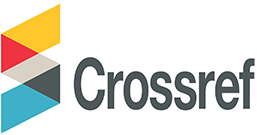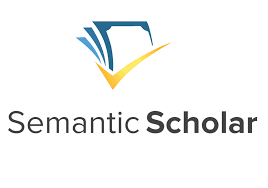The Impact of Assistive Technologies on Academic and Social Outcomes of Deaf-Blind Students in Nigeria.
DOI:
https://doi.org/10.69760/aghel.024060Keywords:
Assistive Technologies, Deaf-Blind Students, Academic Outcomes, Social Inclusion, Teacher Training Nigeria, Inclusive Education, Accessibility, Technological ToolsAbstract
The study investigated the Impact of Assistive Technologies on Academic and Social Outcomes of Deaf-Blind Students in Nigeria. The study employed a mixed-methods research design, guided by five research purposes and five research questions. A stratified random sampling technique was used to select a representative sample of schools, educators, and students across Nigeria. The schools were categorized by geographical regions, and specific schools were chosen based on their accessibility to assistive technologies and enrollment of deaf-blind students. A total of five schools were selected, with 15 teachers and 10 students from each school, resulting in a sample size of approximately 75 teachers and 50 students.
Data collection instruments included a questionnaire for teachers, an interview guide for semi-structured interviews with teachers, administrators, and students, and a focus group discussion guide for facilitating group discussions. To ensure validity, the research instruments were reviewed by experts in special education and assistive technologies. Their feedback was used to refine the instruments before conducting a pilot study with a small sample of teachers and students. This pilot phase assessed the clarity and relevance of the questions. Reliability was ensured through a test-retest procedure, where the instruments were administered to the same group of participants at two different times, and the results were compared to evaluate consistency.
Quantitative data collected from the questionnaires were analyzed using descriptive statistics, including frequency counts, percentages, and means, to summarize the availability and use of assistive technologies, as well as their perceived effectiveness and challenges. Qualitative data from the interviews and focus group discussions were transcribed verbatim and analyzed using thematic analysis. Themes were identified based on participants' responses, focusing on the impact of assistive technologies on academic and social outcomes, as well as the challenges encountered in their implementation.
The results revealed that while basic assistive technologies like Braille machines and screen readers were widely available and utilized, advanced tools such as speech-to-text software and video captioning devices were less accessible and infrequently used. Despite these limitations, participants conveyed positive perceptions of the effectiveness of assistive technologies, particularly regarding academic outcomes. The study also highlighted several challenges, including inadequate teacher training, insufficient funding, and a lack of technical support, which hindered the optimal utilization of these tools. Additionally, the findings underscored the positive impact of assistive technologies on academic performance and social integration, emphasizing their role in fostering greater independence and inclusion for deaf-blind students.
Based on these findings, the study recommended efforts to improve the availability of advanced assistive tools, such as speech-to-text software and video captioning devices, in special schools. It also suggested that schools should seek partnerships with government bodies, NGOs, and private sectors to secure funding and resources. Moreover, it advocated for the expansion of teacher training programs to include comprehensive training on the effective use of assistive technologies, along with continuous professional development to ensure teachers were confident in integrating these tools into their instructional practices.
Downloads
Published
Issue
Section
License
Copyright (c) 2024 Acta Globalis Humanitatis et Linguarum

This work is licensed under a Creative Commons Attribution-NonCommercial-NoDerivatives 4.0 International License.







